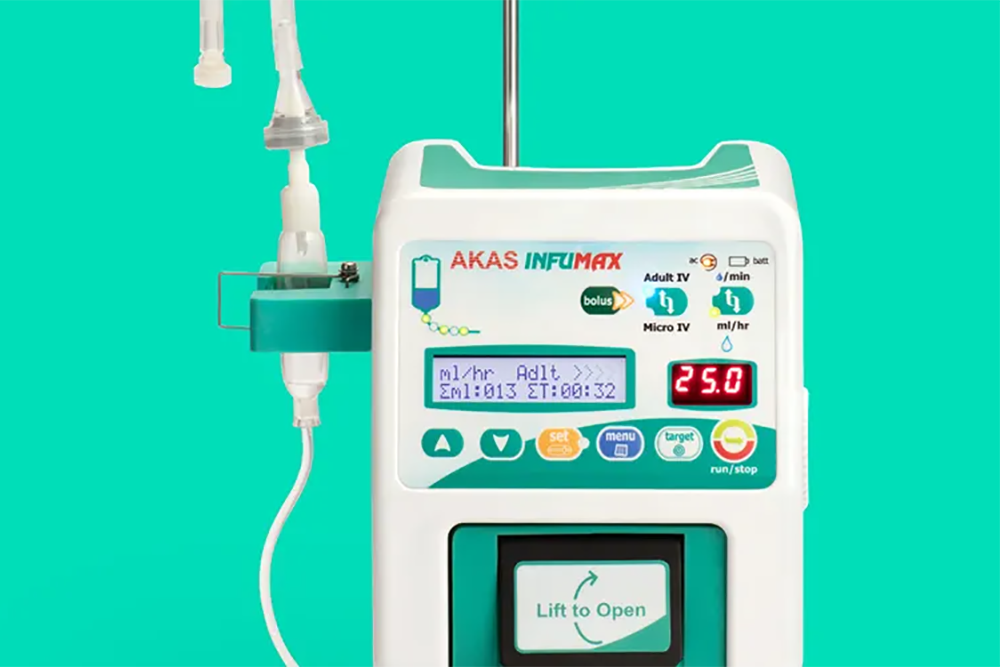The True Cost of Infusion Pump Ownership: Beyond the Purchase Price
In today’s healthcare environment, infusion pumps are vital for delivering precise and controlled medication and fluids to patients. Hospitals across India rely heavily on these devices to ensure critical care quality and efficiency. While the infusion pump price in India is an important consideration, it is just the tip of the iceberg when evaluating the full investment required for these essential tools.
Understanding the total cost of ownership (TCO) for infusion pumps involves looking beyond the initial purchase price to encompass ongoing maintenance, consumables, training, and supplier support. For hospitals aiming to deliver safe, cost-effective care, appreciating these factors is critical to making informed procurement decisions.
Infusion Pump Price in India: Initial Investment
Infusion pump prices in India vary widely based on type, features, and brand. For example, syringe pumps typically range from ₹13,000 to ₹75,000, while volumetric pumps—which offer advanced functionalities—can cost between ₹35,000 and ₹1,50,000 or more. The prices reflect different levels of technology, including safety alarms, anti-free flow mechanisms, and programmable dosing modes.
Hospital procurement teams must balance affordability with clinical requirements. Although lower-priced pumps may save money upfront, they often lack advanced features that improve safety and workflow efficiency, potentially increasing downstream costs associated with errors or device downtime.
The Hidden and Ongoing Costs of Ownership
The purchase price, while visible, forms only part of the overall financial commitment. Hospitals should consider several other factors that contribute to the true cost of owning infusion pumps:
1. Maintenance and Calibration
Infusion pumps require regular preventive maintenance and calibration to ensure accurate operation and patient safety. Skilled biomedical technicians perform these tasks at scheduled intervals, which incur labour and parts costs. Ignoring maintenance can lead to equipment failure or inaccuracies, risking patient harm and costly emergency repairs.
2. Consumables and Accessories
Infusion pumps depend on specific consumables like IV tubing sets, syringes, and batteries. These components, often single-use or periodically replaced, generate recurring expenses. Additionally, purchases of accessories like mounting poles or stands contribute to ongoing costs.
3. Staff Training
Proper use of infusion pumps demands regular staff training. Nurses and clinical staff must be trained in device operation, troubleshooting, and adherence to institutional infusion pump protocols. This training represents a significant investment in time and resources, but is essential to reducing medication errors and optimising pump utilisation.
4. Downtime and Replacement
Device failure or breakdowns can disrupt care delivery, requiring immediate replacement or repairs. Downtime carries indirect costs, as patient treatment may be delayed or interrupted, potentially impacting clinical outcomes and increasing hospital liability.
Cost-Effective Infusion Pumps for Hospitals
Cost-effective infusion pumps do not simply mean the lowest price. Instead, they strike a balance between durability, reliability, safety features, and ease of maintenance. Several Indian and international brands cater to the hospital market, focusing on delivering value by integrating essential safety mechanisms—such as occlusion detection, air-in-line alarms, and smart infusion technology—at competitive prices.
For example, AKAS Infusions, a leading supplier in India, designs pumps with user-friendly interfaces and robust quality controls to minimise medication errors while maintaining cost-efficiency. Their modular designs enable hospitals to replace parts easily, reducing long-term maintenance expenses and ensuring the continuous availability of critical equipment.
Choosing the Right Infusion Pump Supplier
An infusion pump’s reliability and total ownership costs often depend heavily on supplier relationships. The best infusion pump suppliers in India provide not only quality equipment but also comprehensive after-sales support, preventive maintenance services, training programs, and timely spare part availability. Partnering with such suppliers reduces hidden costs, enhances equipment uptime, and ensures compliance with safety standards.
Making a Cost-Informed Purchase Decision
Hospital administrators should adopt a holistic approach when evaluating infusion pumps. This includes assessing:
- Total cost of ownership projections over the expected pump lifecycle
- Warranty and service terms offered by suppliers
- Availability and cost of consumables and accessories
- Training and support infrastructure
- Device safety and compliance with regulatory standards
Such a strategy avoids underestimating the investment needed and helps choose pumps that deliver sustainable value beyond the sticker price, improving patient safety and workflow efficiency.

